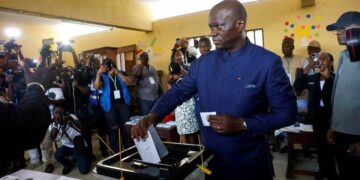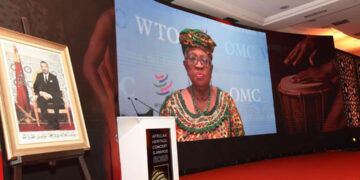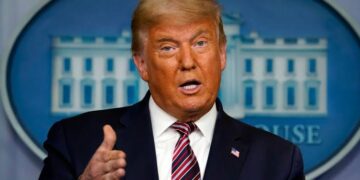By Enyichukwu Enemanna
South Africa’s President Cyril Ramaphosa, in an effort to de-escalate tensions with his US counterpart Donald Trump over a new land administration law, has spoken with a South African-born close ally of Trump, Elon Musk.
The US President had on Sunday threatened to cut all future funding to South Africa over allegations that it was confiscating land and “treating certain classes of people very badly”.
Musk, a tech billionaire, also backed Trump’s position, questioning why Ramaphosa had “openly racist ownership laws”.
In the call to Musk on Monday, Ramaphosa “reiterated South Africa’s constitutionally embedded values of respect for the rule of law, justice, fairness, and equality,” the South African presidency said.
It added on X that Ramaphosa and Musk had spoken “on issues of misinformation and distortions” about South Africa.
Last month, President Cyril Ramaphosa signed into law a bill that allows land seizures without compensation in certain circumstances.
The white-dominated Democratic Alliance opposed the new law, which Pretoria said was enacted to ensure equity and justice.
South Africa’s new law allows for expropriation without compensation only in circumstances where it is “just and equitable and in the public interest” to do so.
Land ownership has long been a contentious issue in South Africa, with most private farmland owned by white people 30 years after the end of apartheid.
On Sunday, Trump wrote on his social media platform, Truth Social: “I will be cutting off all future funding to South Africa until a full investigation of this situation has been completed!”
He later told journalists that South Africa’s “leadership is doing some terrible things, horrible things”.
“So that’s under investigation right now. We’ll make a determination, and until such time as we find out what South Africa is doing — they’re taking away land and confiscating land, and actually, they’re doing things that are perhaps far worse than that.”
In 1994, leader of the African National Congress (ANC), Nelson Mandela, became the country’s first democratically elected president after all South Africans were given the right to vote.
Until the recently passed law, the government was only able to buy land from its current owners under the principle of “willing seller, willing buyer”, which some believe has slowed the land reform process.































